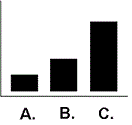P1007
Sturge-Weber syndrome (SWS) is a neurocutaneous disorder that causes capillary abnormalities which affect the skin (generally a port-wine stain on the face), the brain, and the eyes. While port-wine stains are common (3 in 1000), the frequency of SWS is more rare (1 in 20,000). A person with a port-wine stain on the face has a 6% chance of having SWS. Recent reports show that port-wine stains and SWS are both caused by a mutation in the GNAQ gene which changes an arginine residue to a glutamine (p.Arg183Gln). This mutation is a somatic mosaic mutation, meaning that it is present in only a subset of the somatic cells of the body. Somatic cells account for all of the non-germline cells (sperm or eggs) in the body. This mutation is a gain-of-function mutation similar to another GNAQ mutation (p.Gln209Leu) which had been previously reported as causing a rare type of melanoma. In order to understand why p.Gln209Leu causes cancer and p.Arg183Gln causes SWS, scientists tested the activity of the mitogen-activated protein kinase (MAPK) pathway after transfecting wildtype GNAQ, GNAQ p.Gln209Leu, or GNAQ p.Arg183Gln (Figure 1) into cell lines.
Figure 1. MAPK pathway activity. A. wildtype GNAQ; B. GNAQ p.Arg183Gln; C. GNAQ p.Gln209Leu.
Find an error? Take a screenshot, email it to us at error@mytestingsolution.com, and we’ll send you $3!

